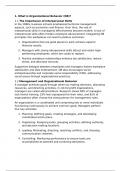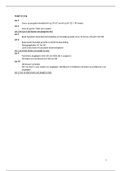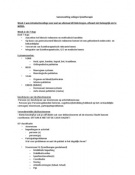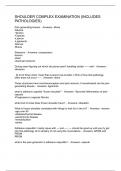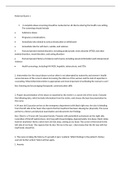Samenvatting
Summary Organizational Behavior (OB) CAB1
- Instelling
- Hanzehogeschool Groningen (Hanze)
1. What is Organizational Behavior (OB)? 1.1 The Importance of Interpersonal Skills In the 1980s, business schools emphasized technical management aspects, such as economics and finance. Over time, the role of interpersonal skills in managerial effectiveness became evident. A lack of interpersona...
[Meer zien]
